Several would-be antidotes to the supersized and high-priced EV trend kicked the bucket this year. That’s bad news for everyone, even if you’d pick a beefy Cybertruck over something resembling a teeny Kei car.
Cars in general are no substitute for more efficient modes of transportation, including trains and bikes. But the last thing the climate and most budgets need is another tank-like truck or SUV. Large, heavy electric vehicles demand more materials and energy than smaller EVs; that means more avoidable greenhouse gas emissions during and after production. Despite these downsides, automakers build big because big sells.
Numerous vehicles from startups and some legacy automakers challenge the “bigger is better” notion via compact designs and smaller price tags. Yet, little typically comes of their resistance. We observed as much with several ill-fated EVs this year, including the ElectraMeccanica Solo, Sono Sion and Mazda MX-30.
Here we’ll take a look at the small and low(er)-priced EVs that didn’t make it — the flops, the failures to launch, the u-turns and holdouts of North America’s size- and range-obsessed EV market.
ElectraMeccanica Solo
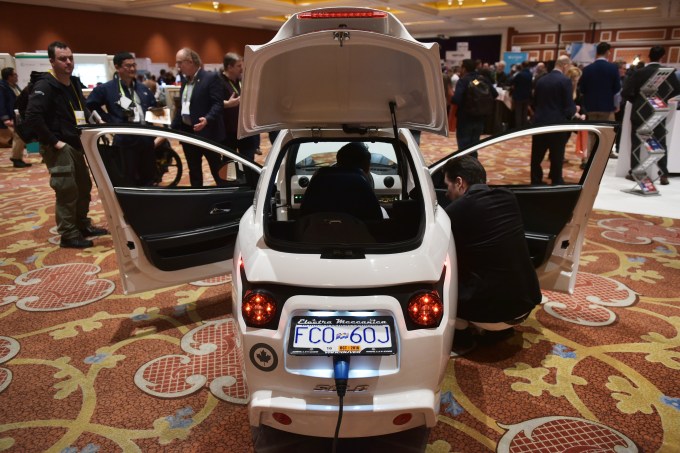
Legally a motorcycle, ElectraMeccanica’s tiny EV featured one seat, 100 miles of range and an $18,500 price tag. The automaker pitched the three-wheeled vehicle to city dwellers and delivery fleet managers alike. I never got to drive a Solo, but I sat inside one of these cuties last year and found it claustrophobic with the doors shut.
In April, ElectraMeccanica recalled every Solo over power failure issues. At the time, the company said it was pivoting to four-wheeled vehicles. ElectraMeccanica soon entered into a plan to merge with electric truck maker Tevva. In October, ElectraMeccanica inexplicably pulled the plug on that exit.
Honda e
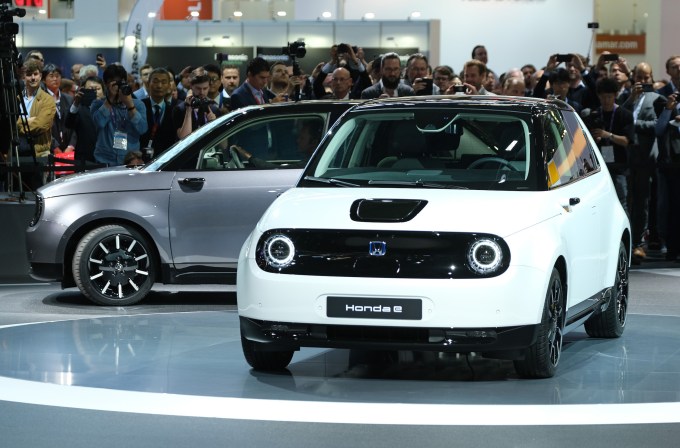
The Honda e debuted in Europe and Japan in 2020 with a 100-mile range and a $36,000-$43,000 price tag. The vehicle charmed reviewers with its city-friendly size and sweet-yet-vacant stare. Yet, as far as sales went it proved to be a total flop, thanks in no small part to its weak price-to-range ratio. Honda never brought the e to other locales, and by December this year, the automaker said it would cease production of the little buggy in January 2024.
Techcrunch eventJoin 10k+ tech and VC leaders for growth and connections at Disrupt 2025
Netflix, Box, a16z, ElevenLabs, Wayve, Sequoia Capital, Elad Gil — just some of the 250+ heavy hitters leading 200+ sessions designed to deliver the insights that fuel startup growth and sharpen your edge. Don’t miss the 20th anniversary of TechCrunch, and a chance to learn from the top voices in tech. Grab your ticket before Sept 26 to save up to $668.
Join 10k+ tech and VC leaders for growth and connections at Disrupt 2025
Netflix, Box, a16z, ElevenLabs, Wayve, Sequoia Capital, Elad Gil — just some of the 250+ heavy hitters leading 200+ sessions designed to deliver the insights that fuel startup growth and sharpen your edge. Don’t miss the 20th anniversary of TechCrunch, and a chance to learn from the top voices in tech. Grab your ticket before Sept 26 to save up to $668.
San Francisco | October 27-29, 2025 REGISTER NOWSono Sion
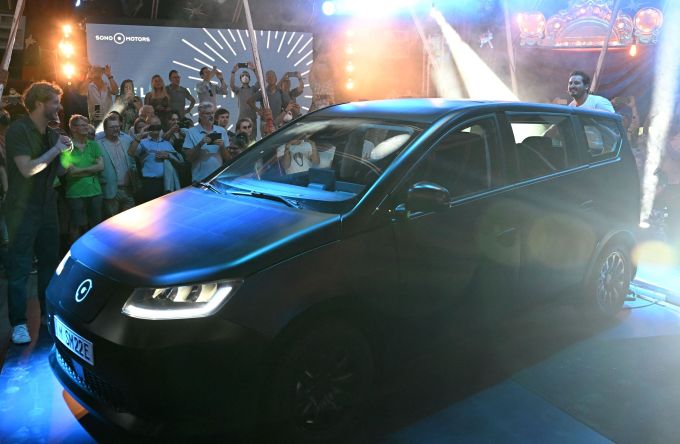
German automaker Sono once led the charge to bring solar panels to electric cars with the five-seater Sono Sion hatchback. Sono priced the Sion (unrelated to Toyota’s Scion badge) at $25,000 and intended to kick off production in 2023.
Instead, Sono pivoted to selling to third-party automakers and laid off 300 workers. No longer an automaker, Sono now focuses on embedding its solar tech into other vehicles.
GM, Honda’s affordable EVs
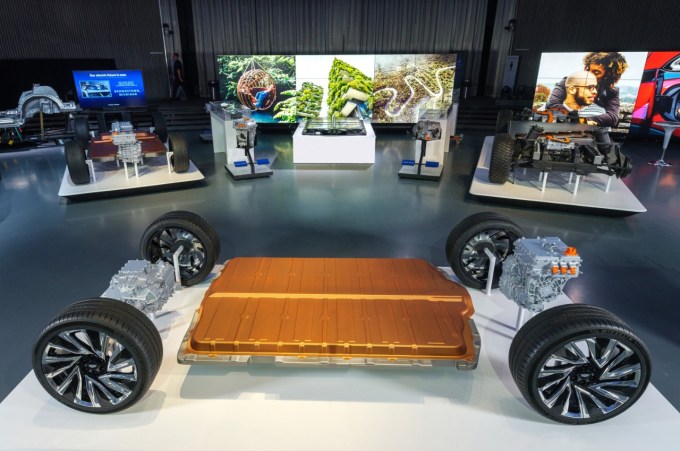
General Motors and Honda said in April 2022 that they’d co-develop millions of small and affordable EVs. They teased sub-$30,000 electrics for North America, aiming to deliver them in 2027.
Yet by October 2023, they canned the collaboration, vaguely citing “extensive studies and analysis” to explain the move. The announcement came as GM slowed its transition to EVs and Honda teased a “new global EV series” of its own.
Mazda MX-30 (U.S.)
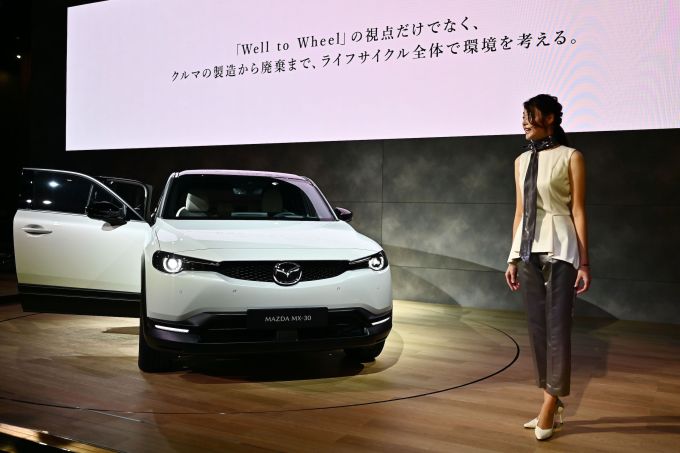
The Mazda MX-30 is small by Cybertruck standards (Tesla’s vehicle is 25% longer and wider), but the only truly diminutive thing about the MX-30 is its 100-mile range and availability. Stateside, Mazda exclusively sold the MX-30 in California, the state with the most EV chargers by a factor of five.
Mazda said in July that it planned to discontinue the EV in the U.S. at the end of 2023. However, the automaker will continue selling the EV in Japan and the EU.
Revel mopeds
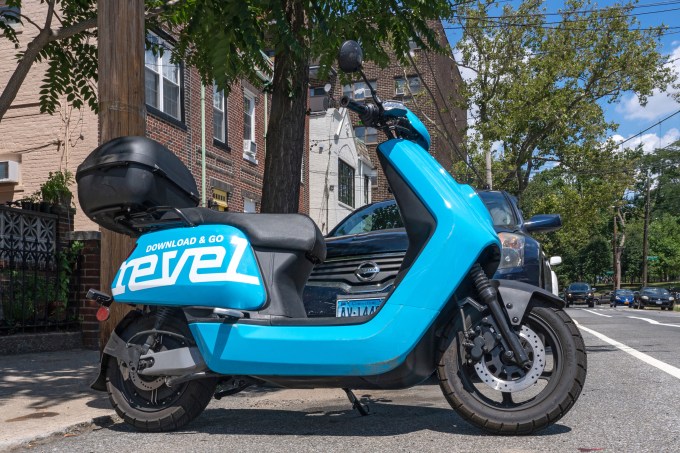
Revel — the Blackrock- and Shell-backed moped-sharing business — dumped its two-wheeled EVs this year in favor of regular-old electric cars. Revel said its moped ridership peaked in July 2020, at nearly 600,000 rides that month. In the years that followed, the company’s moped ridership collapsed amid several deaths involving Revel mopeds, as e-bikes gained ground in cities like New York and San Francisco.
VanMoof

Dutch e-bike startup VanMoof rode the high of the COVID-19-era bike boom into a $128 million Series C funding round. VanMoof proclaimed at the time that it was the “most funded e-bike company in the world,” and co-founder Taco Carlier boasted the company was “reinventing, redesigning, and re-engineering every component of the bicycle.”
VanMoof’s rapid growth and focus on proprietary parts led to its downfall. By 2023, the company reportedly lost money on each bike due to costly repairs, and struggled to raise additional funds to stay afloat. This past summer, VanMoof paused sales and Taco Carlier left as the firm declared bankruptcy.
Electric scooter maker Lavoie acquired what was left of VanMoof in August for “tens of millions,” pulling it out of bankruptcy. Months later, it seems the acquirer has yet to restart VanMoof production or resume repairs.
On the other hand
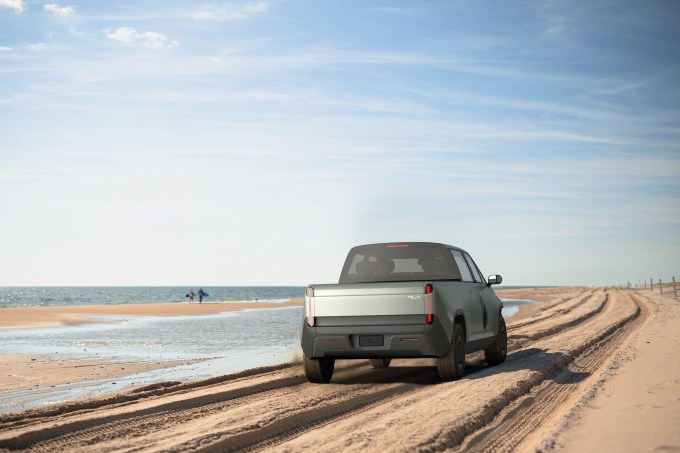
It’s been a bummer year for fans of small EVs, but all is not lost. For one, city bike-sharing programs are booming and increasingly electric. D.C.’s Capitol Bikeshare notched a record 428,000 rides in the month of may. That same month, New York’s Citi Bike recorded 867,838 rides in a single week — and the program continues to expand.
Beyond e-bikes, Arcimoto lives on as the rare, three-wheeled EV holdout in the U.S. The Fiat 500e is coming to North America in 2024 (in limited quantities), several years after its debut in the EU. A startup called Telo Trucks is attempting to prove that Americans will buy small trucks again, and it’s developing a pickup with the footprint of a two-door Mini Cooper. Plus, while GM said it would kill the Chevy Bolt and larger Bolt EUV, the automaker now says it will keep the latter Bolt around.

